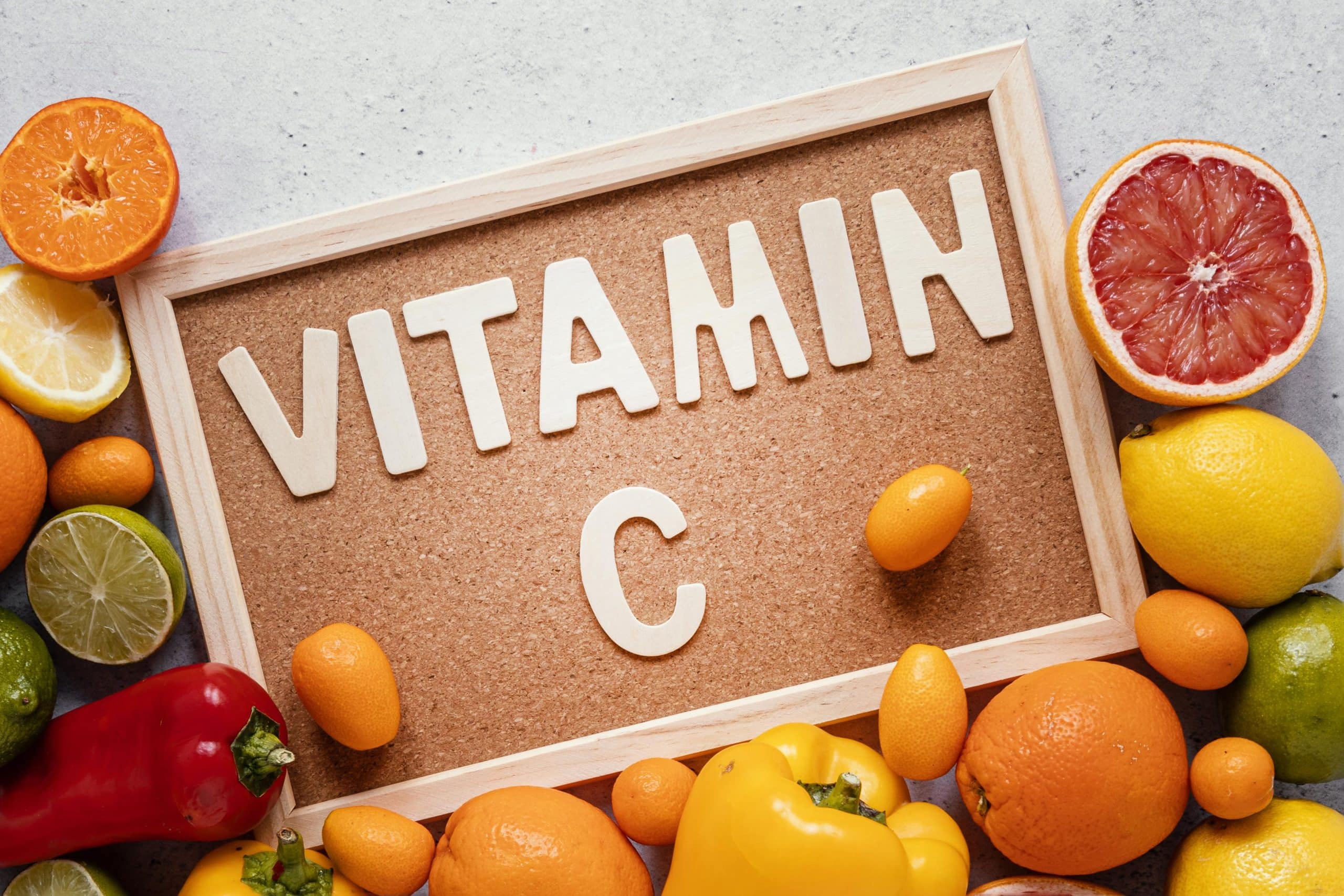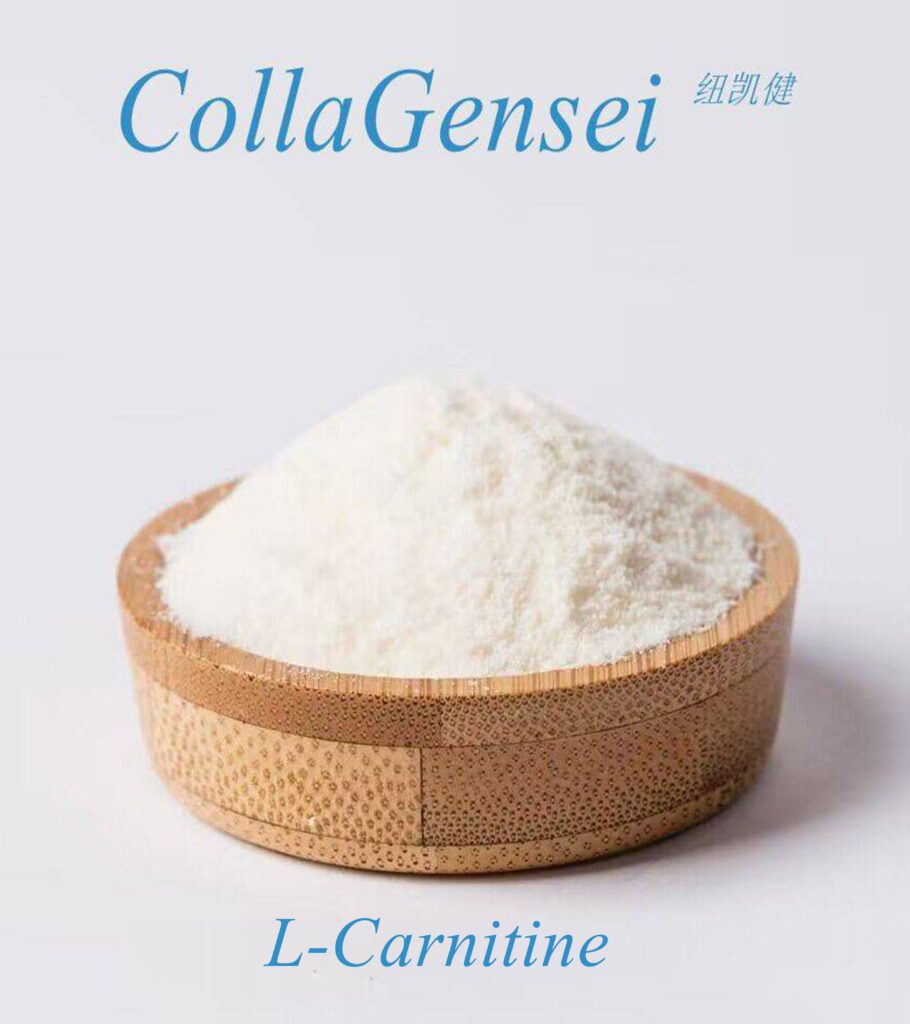Introduction
In health and wellness, dietary supplements are increasingly recognized for their potential to enhance overall well-being. Among these, Chicken Collagen Type 2 and Vitamin C are prominent due to their distinct yet complementary roles in maintaining health. Chicken Collagen Type 2, primarily sourced from chicken cartilage, is known for its benefits in joint and cartilage health. Vitamin C, a powerful antioxidant, is essential for various physiological functions, including collagen synthesis and immune support. This comprehensive guide delves into the science behind Chicken Collagen Type 2 and Vitamin C, their health benefits, and their practical applications.
- Chicken Collagen Type 2
1.1. What is Collagen?
Collagen is the most abundant protein in the human body, constituting about 30% of the body’s total protein content. It is a critical structural protein in connective tissues, including skin, bones, tendons, ligaments, and cartilage. Collagen provides strength, elasticity, and support to these tissues, contributing to their overall integrity and function.
1.2. Types of Collagen
Collagen is classified into several types based on its structure and function:
Type I Collagen: The most prevalent type, found in skin, tendons, ligaments, and bones. It provides tensile strength and structural support.
Type II Collagen: Predominantly located in cartilage, it offers support and elasticity, which is crucial for maintaining joint health.
Type III Collagen: Found in skin, blood vessels, and internal organs, it helps maintain tissue elasticity and strength.
Type IV Collagen: Located in the basal lamina of epithelial and endothelial tissues, it facilitates filtering functions and cell support.
1.3. Chicken Collagen Type 2
Chicken Collagen Type 2 is derived from chicken cartilage and is rich in Type II collagen. This type of collagen is particularly beneficial for joint health and cartilage repair.
1.4. Structural Characteristics
Type II collagen features a unique triple-helix structure composed of three polypeptide chains: two alpha-1 chains and one alpha-2 chain. Hydrogen bonds stabilize this configuration and include amino acids such as glycine, proline, and hydroxyproline. The triple-helix structure provides mechanical strength and flexibility, essential for cartilage resilience and function.
1.5. Biological Functions
Chicken Collagen Type 2 serves several vital functions:
Joint Health: Supports the maintenance and repair of cartilage, reducing joint pain and stiffness.
Osteoarthritis Management: Supplementation with Chicken Collagen Type 2 has been shown to improve symptoms of osteoarthritis and may slow its progression by promoting cartilage repair.
Cartilage Regeneration: Encourages the regeneration of damaged cartilage, enhancing joint function and mobility.
1.6. Research and Clinical Studies
Research into Chicken Collagen Type 2 has demonstrated its effectiveness in supporting joint health:
Osteoarthritis Studies: Clinical trials have shown that oral supplementation with Chicken Collagen Type 2 can alleviate pain and improve joint function in individuals with osteoarthritis.
Mechanism of Action: Chicken Collagen Type 2 may work by modulating immune responses and reducing inflammation, contributing to its therapeutic effects.
1.7. Safety and Dosage
Chicken Collagen Type 2 is generally safe when used within recommended dosages. Typical daily dosages range from 40 to 100 mg. Individuals with allergies to chicken products should consult a healthcare professional before use.
- Vitamin C
2.1. What is Vitamin C?
Vitamin C, also known as ascorbic acid, is a water-soluble vitamin with potent antioxidant properties. It is crucial in various physiological functions, including collagen synthesis, immune support, and antioxidant defense.
2.2. Structural Characteristics
Vitamin C has a chemical structure characterized by a six-carbon compound with an enediol group, which provides its antioxidant properties. The structure includes:
Ascorbic Acid: The active form of Vitamin C, which can donate electrons to neutralize free radicals.
Dehydroascorbic Acid is an oxidized form of Vitamin C that can be reduced to ascorbic acid.
2.3. Biological Functions
Vitamin C is involved in several vital processes:
Collagen Synthesis: Essential for synthesizing collagen, which is necessary for the integrity of connective tissues, skin, and cartilage.
Antioxidant Protection: Neutralizes free radicals and protects cells from oxidative damage.
Immune Support: Enhances the function of immune cells and supports overall immune health.
Iron Absorption: Improves the absorption of non-heme iron from plant-based foods.
2.4. Health Benefits
Vitamin C provides a range of health benefits:
Skin Health: Supports the synthesis of collagen, which is vital for skin elasticity and wound healing.
Immune Function: Boosts immune responses and may reduce the duration and severity of common colds.
Antioxidant Defense: Protects against oxidative stress and may reduce the risk of chronic diseases.
Iron Absorption: Enhances the absorption of iron, reducing the risk of iron deficiency anemia.
2.5. Research and Clinical Studies
Extensive research has highlighted the importance of Vitamin C:
Collagen Synthesis Studies: Clinical trials have shown that Vitamin C supplementation improves collagen synthesis and supports connective tissue health.
Immune Function: Studies have demonstrated that Vitamin C can enhance immune responses and may reduce the incidence of respiratory infections.
Antioxidant Protection: Research indicates that Vitamin C’s antioxidant properties can protect against oxidative stress and may lower the risk of chronic diseases.
2.6. Safety and Dosage
Vitamin C is generally safe when used within recommended dosages. The recommended daily allowance (RDA) for Vitamin C varies by age and sex, with typical values of 75-90 mg for adults. High doses can cause gastrointestinal disturbances and, in extreme cases, kidney stones. It is advisable to consult a healthcare provider before starting high-dose Vitamin C supplementation.
- Synergy Between Chicken Collagen Type 2 and Vitamin C
3.1. Combined Benefits
The combination of Chicken Collagen Type 2 and Vitamin C may offer synergistic benefits due to their complementary roles in health:
Enhanced Collagen Synthesis: Vitamin C is essential for synthesizing and maintaining collagen. Combined with Chicken Collagen Type 2, which provides the specific Type II collagen needed for cartilage health, the synergistic effect may enhance joint health and repair.
Joint and Skin Health: Chicken Collagen Type 2 supports joint cartilage, while Vitamin C contributes to skin health and collagen synthesis. Together, they improve overall connective tissue health.
Immune Support: Both Chicken Collagen Type 2 and Vitamin C play roles in supporting immune function. Combining them may offer comprehensive support for both joint health and immune defense.
3.2. Research Insights
Research into the combined use of Chicken Collagen Type 2 and Vitamin C is still emerging. However, preliminary studies suggest that Vitamin C may enhance the effectiveness of collagen supplements by supporting collagen synthesis and repair processes.
3.3. Practical Considerations
Combining Chicken Collagen Type 2 with Vitamin C can be beneficial, but it is essential to use them in appropriate dosages:
Dosage Recommendations: Follow the recommended dosages for both supplements. Typical daily dosages for Chicken Collagen Type 2 range from 40 to 100 mg, while Vitamin C dosages should align with the RDA or as a healthcare provider advises.
Supplement Formulations: Some supplements combine collagen with Vitamin C to provide a convenient and synergistic approach to supporting joint and skin health.
- Practical Applications
4.1. Dietary Supplements
Both Chicken Collagen Type 2 and Vitamin C are available as dietary supplements. They can be taken individually or in combination to support joint health, skin health, and overall well-being.
4.2. Functional Foods
Vitamin C can be incorporated into functional foods and beverages to support immune function and collagen synthesis. Chicken Collagen Type 2 can be included in functional foods to improve joint health and cartilage integrity.
4.3. Sports and Wellness Nutrition
Chicken Collagen Type 2 may be included in sports nutrition products to support joint health and recovery. Vitamin C can be added to wellness products to enhance immune function and antioxidant defense.
- Future Directions and Research
5.1. Emerging Studies
Ongoing research explores the combined effects of Chicken Collagen Type 2 and Vitamin C on various health aspects. Future studies may provide deeper insights into their synergistic impact on joint health, collagen synthesis, and overall wellness.
5.2. Innovations in Supplement Formulations
Advancements in supplement technology, such as improved delivery systems and enhanced bioavailability, may increase the effectiveness of both Chicken Collagen Type 2 and Vitamin C. Innovations like nanoencapsulation and sustained-release systems could improve their benefits.
5.3. Personalized Health Approaches
Considering individual genetic and physiological factors, personalized health strategies may optimize the benefits of Chicken Collagen Type 2 and Vitamin C. Customized supplement regimens could improve health outcomes based on specific needs and conditions.
Conclusion
Chicken Collagen Type 2 and Vitamin C are essential supplements with distinct yet complementary benefits. Chicken Collagen Type 2 supports joint health and cartilage repair, while Vitamin C is crucial for collagen synthesis, immune function, and antioxidant protection. Understanding their structures, functions, and benefits provides valuable insights into their use in promoting overall health. Continued research and advancements in supplement technology will further elucidate their potential and enhance their applications in health and nutrition.




